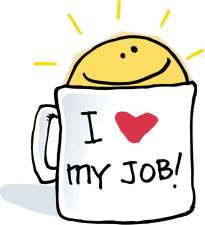
“The measure of intelligence is the ability to change”
(Albert Einstein)
We are all now starting to look to the future in a post-coronavirus world. Some of you may already be putting plans in place for your careers, others may still consider it too early to make any decisions or are unsure what to do next. How do you prepare to make changes in your career in a post-coronavirus world?
I am finding that career change, flexible working and wellbeing are some of the main areas of change being reviewed by individuals at the moment as they consider the future of their working lives. These are the areas that are often considered when deciding on best-suited career paths.
Career Change
According to recent research by the Adecco Group UK and Ireland, 29% of the UK’s workforce is considering a significant career change. One of the reasons being that many individuals (nearly one in five) felt they were not being treated well by their employer during the pandemic. There are also many people who, before the time of coronavirus were considering a career change, and still want to pursue this.
Flexible Working
Working patterns have changed over the last few months allowing for more flexibility and working from home arrangements. This has prompted thoughts on how our working lives can benefit from this flexibility. Is there more scope for portfolio careers? Can our working lives work around our family and home life in a more beneficial manner?
Wellbeing
In recent months, we have also had lots of time to think about our wellbeing. Spending more time at home has enabled us to spend time discovering what really makes us happy and feel good about ourselves. There will be changes many individuals will want to make to their lives now and in the future.
Since March, I have published a series of blogs, articles, and videos to assist you in navigating the impact coronavirus is having on the world of jobs and careers. These are all summarised below – I hope they will be helpful for you as you start to make decisions about what the future holds for your career as we emerge from the affects coronavirus has had on our lives.
BLOGS
Looking after your career in the time of Coronavirus
This blog was written at the beginning of lockdown to help those worried about their future.
5 ways to get out of lockdown lethargy
To help you manage any uncertainty in your life and career.
Coronavirus and careers – what happens next?
Helping you to navigate the impact coronavirus has on your career.
Making career decisions in uncertain times
Some useful thoughts and ideas on how we start making decisions about our future careers when everything appears so uncertain.
How do we develop ways to get through the hard times in our careers?
Find out how to make career changes during tough times to enable you to move forward happily in your career.
CVs that stand out – this will make you smile!
Just for a bit of fun! Have you ever thought of presenting your CV in the form of a cereal box? Discover some fun and creative examples of CV writing to make you stand out from the crowd.
ARTICLES
How to adapt to uncertain times to find the career you love
VIDEOS
Making career decisions in uncertain times
Building your confidence for a career change
MY BOOK
‘The Tea Model: Slowing down in a fast-paced world to find the career you love’
My book provides a structured process to help you move forward in your career. I had had over 700 downloads over lockdown so I’m hoping it is currently helping lots of individuals with their careers!
Whatever your circumstances, this may be the right time for change no matter how big or small. If you need some assistance do have a look at my website where you can browse through lots of free career resources.







 My passion for helping children has continued in a voluntary capacity leading me over the last couple of years to designing my primary school confidence coaching programme (
My passion for helping children has continued in a voluntary capacity leading me over the last couple of years to designing my primary school confidence coaching programme ( Everything you read in my book (
Everything you read in my book ( It’s that time of year when I do a round-up of all my articles and blogs for the year. I do this so that when reflecting on your career (as many do over Christmas and New Year) you can quickly scan through this round-up and read what is relevant for you. I hope it is helpful!
It’s that time of year when I do a round-up of all my articles and blogs for the year. I do this so that when reflecting on your career (as many do over Christmas and New Year) you can quickly scan through this round-up and read what is relevant for you. I hope it is helpful!


